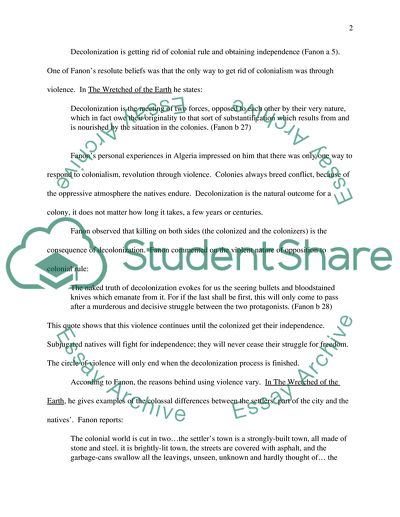Cite this document
(“Decolonization as a Violent Phenomenon Essay Example | Topics and Well Written Essays - 2500 words”, n.d.)
Retrieved from https://studentshare.org/social-science/1536299-decolonization-is-always-a-violent-phenomenon-editing
Retrieved from https://studentshare.org/social-science/1536299-decolonization-is-always-a-violent-phenomenon-editing
(Decolonization As a Violent Phenomenon Essay Example | Topics and Well Written Essays - 2500 Words)
https://studentshare.org/social-science/1536299-decolonization-is-always-a-violent-phenomenon-editing.
https://studentshare.org/social-science/1536299-decolonization-is-always-a-violent-phenomenon-editing.
“Decolonization As a Violent Phenomenon Essay Example | Topics and Well Written Essays - 2500 Words”, n.d. https://studentshare.org/social-science/1536299-decolonization-is-always-a-violent-phenomenon-editing.


